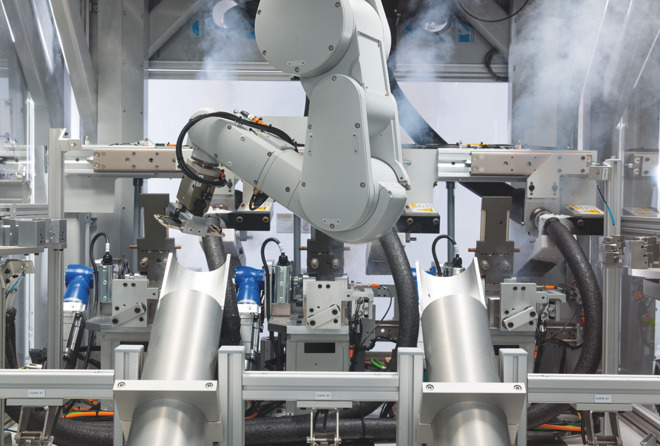Apple is continuing to further its environmental credentials by announcing a number of initiatives ahead of Earth Day, including charitable donations for devices received as part of the Apple GiveBack program, and the introduction of a new iPhone recycling robot called Daisy.

Running until April 30, Apple pledges to make a donation to the non-profit Conservation International for every device received at Apple Stores and Apple.com under the Apple GiveBack program. Customers handing in their devices will continue to receive credit for an in-store purchase or an Apple Store gift card for future use for participating in the scheme.
Founded in 1987, Conservation International is an organization aimed at protecting the environment, using a combination of science, partnerships, and policy changes with a number of companies, communities, and countries around the world. It has helped support 1,200 protected areas and interventions across 77 countries, safeguarding more than 601 million hectares of land, marine, and coastal areas in the process.
"We are thrilled to have Apple's support for Conservation International's critical work to protect nature for people everywhere," said Conservation International CEO Dr. M. Sanjayan. According to the CEO, the environmental organization "is proud to partner with Apple in giving consumers a great reason to join our movement."
"Apple's efforts to use recycled materials in its products represent the future of sustainable manufacturing," Sanjayan adds. "Apple is showing the world how it's done."
"At Apple, we're constantly working toward smart solutions to address climate change and conserve our planet's precious resources," said Lisa Jackson, Apple's vice president of Environment, Policy and Social Initiatives. "In recognition of Earth Day, we are making it as simple as possible for our customers to recycle devices and do something good for the planet through Apple GiveBack."
The latest version of Apple's recycling robot, Daisy is a machine used to disassemble an iPhone, which Apple claims has become the most efficient way to reclaim more of the valuable materials used in each device. Daisy is capable of taking apart nine versions of iPhone and sorting the components for recycling, working at a rate of up to 200 iPhones per hour.
Apple used technology it developed based what the firm learned from the creation of its first disassembly robot, Liam, which the company debuted in 2016. Continuing the recycling theme, Daisy actually reuses some of the parts used in Liam alongside other changes to the robot's design.
Daisy, and predecessor Liam, were created to allow Apple to recover materials inside an iPhone that traditional recyclers cannot, as well as to achieve a higher quality of acquired material from each device.
To raise awareness of Earth Day, Apple Watch users will receive a notification about a special Earth Day Challenge later today, requiring them to go outside and complete a workout consisting of at least 30 minutes on the day itself on Sunday, April 22. Those completing the task will receive a special achievement and unique stickers in iMessage.
Starting tomorrow, Apple Store locations around the world will also honor Earth Day by adding window decals and logos with green leaves.
Apple has a history of promoting environmentalism and creating internal programs to make the company greener. Last year, it was revealed Apple protected and created enough sustainable forestland to cover all the paper used in its packaging, effectively achieving a net-zero impact on the world's virgin fiber.
On April 9, Apple announced its entire global operation, from offices to retail stores, are completely powered by renewable energy resources, and has also convinced 23 partner companies in its supply chain to pledge to reach 100 percent renewable energy usage in the future.
Apple has also recently opposed a proposal from the U.S. Environmental Protection Agency to repeal the Clean Power Plan, which would set standards for reduced greenhouse emissions from power plants. The company argued that scrapping the CPP would threaten investments already sunk into renewable power.


